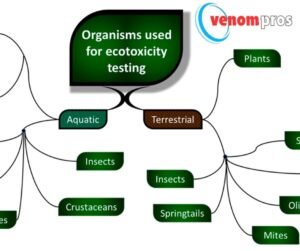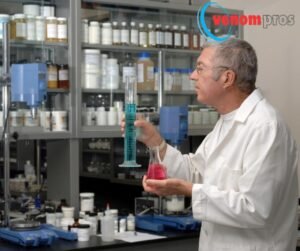
Principal Investigator in Toxicology Research: A Pillar in Scientific Discovery and Public Health
The role of a Principal Investigator (PI) in toxicology research is a crucial position in the landscape of biomedical sciences, public health, and environmental safety. Toxicology, the study of the harmful effects of chemical, physical, and biological agents on living organisms and the ecosystem, plays a vital role in safeguarding human health. A PI in toxicology research not only leads groundbreaking scientific inquiries but also ensures that the knowledge generated translates into actionable strategies for mitigating health risks and guiding public policy. In this article, we will explore the responsibilities, challenges, and impacts of being a Principal Investigator in toxicology research, along with the significance of their work to society.
The Role of a Principal Investigator in Toxicology Research
A Principal Investigator is typically a senior scientist or researcher who leads a research project or team. They are responsible for designing experiments, managing resources, ensuring compliance with regulations, and publishing findings. In toxicology research, the PI often works at the intersection of biology, chemistry, medicine, and environmental science to investigate how substances like drugs, chemicals, and pollutants affect living organisms, ecosystems, and human health.
A PI in toxicology typically holds a PhD or MD, along with extensive experience in laboratory research. They are often affiliated with universities, government agencies, private industry, or specialized research institutes. They lead interdisciplinary teams, collaborate with other experts, and oversee projects that range from basic mechanistic toxicology to applied work in regulatory toxicology, risk assessment, and clinical trials.
Some of the critical responsibilities of a toxicology PI include:
Designing and Conducting Research
The primary responsibility of a PI is to conceive, plan, and execute research that advances knowledge in toxicology. This includes formulating hypotheses, developing experimental designs, and selecting appropriate methods to investigate toxicological phenomena. These studies might examine the effects of toxins at the molecular, cellular, organismal, or population levels. A PI may focus on various fields of toxicology such as clinical, forensic, environmental, or regulatory toxicology.
Managing Research Teams and Resources
As leaders of research projects, PIs must manage a team of scientists, technicians, and sometimes students. Effective communication and leadership are essential, as the PI ensures that experiments are conducted efficiently, data are collected and analyzed properly, and safety protocols are followed. Additionally, PIs manage budgets, secure funding through grants, and allocate resources such as equipment and lab space to ensure that the research can progress smoothly in Principal Investigator.
Publishing and Communicating Results
Disseminating research findings is a key responsibility. A PI must ensure that results are published in peer-reviewed scientific journals, presented at conferences, and communicated to relevant stakeholders, including policymakers, regulators, and the general public. The findings can influence regulatory decisions, such as establishing safety levels for chemicals in the environment or in consumer products in Principal Investigator.
Compliance with Ethical and Regulatory Standards
Toxicology research often involves working with potentially hazardous substances or conducting studies that involve human or animal subjects. As such, PIs must ensure compliance with ethical standards, such as obtaining proper institutional approvals for research involving humans or animals, and following strict protocols to minimize risks to the research team and the environment. They must also adhere to legal and regulatory frameworks that govern the testing and use of toxic substances in Principal Investigator.
Mentoring and Training the Next Generation
As senior scientists, PIs play an essential role in mentoring junior researchers, postdoctoral fellows, and graduate students. The legacy of a PI in toxicology extends beyond their publications, as they shape the future of the field through the training and development of young scientists in Principal Investigator.
Impact of Toxicology Research on Public Health and Safety
The work of a PI in toxicology research has profound implications for public health, environmental safety, and industrial practices. Their research can lead to breakthroughs in understanding how toxic agents affect human health and ecosystems, contributing to the development of safer products, environmental regulations, and therapeutic interventions in Principal Investigator.
Risk Assessment and Regulation
One of the most direct impacts of toxicology research is in risk assessment. By studying the toxic effects of substances, PIs contribute to determining what levels of exposure are safe for humans, animals, and the environment. This information is crucial for regulatory agencies like the Environmental Protection Agency (EPA) or the Food and Drug Administration (FDA), which use toxicological data to set safety standards for chemicals in food, water, air, pharmaceuticals, and industrial products in Principal Investigator.
Drug Development and Safety
In pharmaceutical toxicology, PIs play a crucial role in drug development. Before a new drug can be approved for human use, it must undergo rigorous testing to assess its potential toxic effects. PIs lead preclinical studies that examine the drug’s toxicity in Principal Investigator.
Environmental Protection
Environmental toxicologists investigate how pollutants—such as heavy metals, pesticides, and industrial chemicals—affect ecosystems and biodiversity. By understanding how these substances move through the environment and accumulate in living organisms, PIs help develop strategies for reducing environmental contamination and protecting endangered species. This research informs policies aimed at reducing emissions of harmful chemicals and remediating contaminated sites in Principal Investigator.
Forensic and Clinical Toxicology
PIs in forensic and clinical toxicology contribute to public safety and the justice system. In forensic toxicology, researchers develop methods for detecting drugs, poisons, and other substances in biological samples, playing a critical role in criminal investigations and legal proceedings in Principal Investigator.
Challenges and Opportunities in Toxicology Research
Despite its many rewards, being a PI in toxicology research comes with significant challenges. Securing funding can be competitive, as research grants are often limited, and toxicology projects may be expensive due to the need for specialized equipment and safety measures in Principal Investigator.
Conclusion
The role of a Principal Investigator in toxicology research is multifaceted and impactful. Through their leadership, scientific expertise, and commitment to public health, PIs drive advancements in our understanding of toxic substances and their effects on living organisms in Principal Investigator.
Also read this;>“Marine Toxins: How Fish Venom Impacts the Ocean Ecosystem”
Also read this;>Biden Rallies Global Support for Gaza Ceasefire After Hamas Leader Yahya Sinwar’s Death







